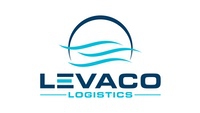Digital integration in airfreight industry is a major challenge
To provide integrated solutions to customers, the air cargo industry must become more collaborative and “stop passing the buck”. Delegates at IATA’s WCS in Singapore last week heard from numerous panellists that collaborative data platforms would be transformational for the industry.
“Integration is a major challenge,” said Wolfgang Lehmacher, a senior supply chain executive. “Integrating digitally is one of the pre-requisites to being a good player, being able to plug into all platforms. “Data is the new oil of the industry. [Rivals] Hamburg and Rotterdam ports last year began exchanging data following pressure from clients.
Airfreight industry should seriously consider added value of data sharing
“Young people share data with platforms that might not be seen as trustworthy – but they do it because of the benefit they get out of it.” He advised: “You should look at the value you can get out of data-sharing.” Global managing director freight and logistics for Accenture Adriana Diener said companies which couldn’t recognise this “would be left behind”.
She added: “Transparency of data exchanges is coming. That train has left the station. And some companies are now experimenting with it – not all are in denial. “I have no doubt that the only way things will change is through collaboration of all parties. Ocean freight is in much the same spot, lots of technological innovations have not happened.
Digital fragmentation is contra productive
“Digitisation is about changing interactions,” she continued. “Facilitation needs to happen. Initially it won’t necessarily be industry-wide, but then others will adopt or copy.” Senior vice president cargo for Singapore Airlines Chin Yao Seng said it wasn’t too late, but “we should have put digitisation higher up the agenda, earlier”.
“We need to continue to work on building up confidence. There is not a lot of trust among different parties in the supply chain.” And trust was also a key element to ensuring a more effective supply chain – along with blame, or lack thereof, delegates heard. “There is still fragmentation,” said Steven Polmans, Brussels Airport cargo chief and TIACA vice chairman. “We blame the other parties in the chain, rather than finding a solution. Shippers are not happy with that. We should be united in front of the shipper.
Airfreight growth thanks to data transparency
“If you see a problem, solve it before you hand it on to the next partner in the chain. If you pass on the problem, it gets bigger and bigger and no one can handle it. It’s so easy to look the other way.” Forwarders agreed. “It’s the willingness to connect that is important,” said WCA chief Dan March. “I fear people still ask ‘how much of the pie can I grab’, instead of looking at how to grow the pie together.
“People need to come together and connect, and ask what customers need. If we can provide transparency, there is huge growth potential, and a huge space for air cargo – but we are going to have to work together as an industry.”
©TheLoadstar-AlexLennane







